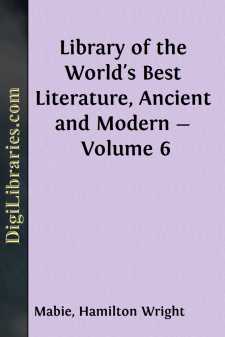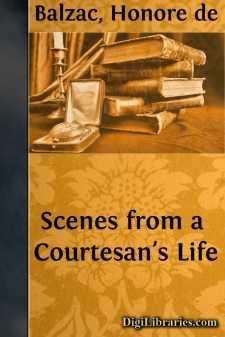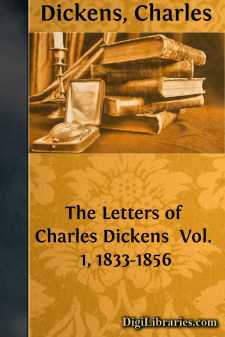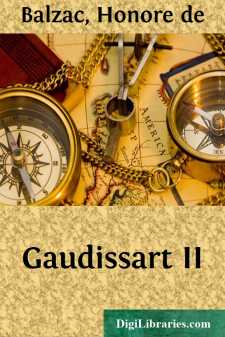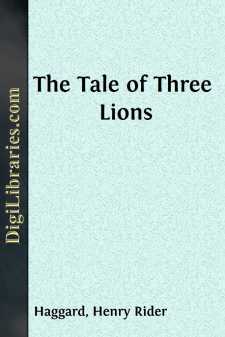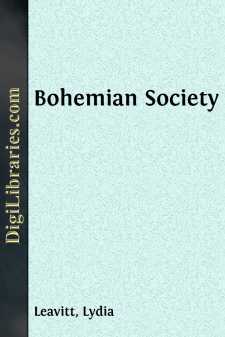Literary Collections
- American 84
- Ancient, Classical & Medieval 14
- Asian 1
- Australian & Oceanian 1
- Canadian 55
- Continental European 121
- English, Irish, Scottish, Welsh 179
- Essays 160
- General 24
- Letters 46
- Middle Eastern 1
Literary Collections Books
Sort by:
THE ABBÉ DE BRANTÔME (PIERRE DE BOURDEILLE) (1527-1614) very historian of the Valois period is indebted to Brantôme for preserving the atmosphere and detail of the brilliant life in which he moved as a dashing courtier, a military adventurer, and a gallant gentleman of high degree. He was not a professional scribe, nor a student; but he took notes unconsciously, and in the evening of his life...
more...
by:
Honore de Balzac
ESTHER HAPPY; OR, HOW A COURTESAN CAN LOVE In 1824, at the last opera ball of the season, several masks were struck by the beauty of a youth who was wandering about the passages and greenroom with the air of a man in search of a woman kept at home by unexpected circumstances. The secret of this behavior, now dilatory and again hurried, is known only to old women and to certain experienced loungers. In...
more...
INTRODUCTION. I sincerely rejoice that Dr. Lightfoot has recovered from his recent illness. Of this restoration the vigorous energy of his preface to his republication of the Essays on Supernatural Religion affords decided evidence, and I hope that no refutation of this inference at least may be possible, however little we may agree on other points. It was natural that Dr. Lightfoot should not be...
more...
by:
Charles Dickens
PREFACE.Weintend this Collection of Letters to be a Supplement to the "Life of Charles Dickens," by John Forster. That work, perfect and exhaustive as a biography, is only incomplete as regards correspondence; the scheme of the book having made it impossible to include in its space any letters, or hardly any, besides those addressed to Mr. Forster. As no man ever expressedhimselfmore in his...
more...
by:
Honore de Balzac
GAUDISSART II. To know how to sell, to be able to sell, and to sell. People generally do not suspect how much of the stateliness of Paris is due to these three aspects of the same problem. The brilliant display of shops as rich as the salons of the noblesse before 1789; the splendors of cafes which eclipse, and easily eclipse, the Versailles of our day; the shop-window illusions, new every morning,...
more...
CHAPTER I. THE INTEREST ON TEN SHILLINGS Most of you will have heard that Allan Quatermain, who was one of the party that discovered King Solomon's mines some little time ago, and who afterwards came to live in England near his friend Sir Henry Curtis. He went back to the wilderness again, as these old hunters almost invariably do, on one pretext or another.[*] They cannot endure civilization for...
more...
by:
Lydia Leavitt
BOHEMIAN SOCIETY."She was not fair,Nor beautiful,—those words express her not,But, O, her looks had something excellentThat wants a name."In a country house near the city of B—— lived a lady of cultivated mind and manners, "a noble woman nobly planned." Well read and familiar with such writers as Tyndall, Huxley, Spencer and other scientists, and being rather cosmopolitan in...
more...
by:
William Carleton
PART I. If there be one object in life that stirs the current of human feeling more sadly than another, it is a young and lovely woman, whose intellect has been blighted by the treachery of him on whose heart, as on a shrine, she offered up the incense of her first affection. Such a being not only draws around her our tenderest and most delicate sympathies, but fills us with that mournful impression of...
more...
by:
Charles Reade
CHAPTER I. Hillsborough and its outlying suburbs make bricks by the million, spin and weave both wool and cotton, forge in steel from the finest needle up to a ship's armor, and so add considerably to the kingdom's wealth. But industry so vast, working by steam on a limited space, has been fatal to beauty: Hillsborough, though built on one of the loveliest sites in England, is perhaps the...
more...
by:
Ralph Connor
CHAPTER I THE TRAIL-RUNNER High up on the hillside in the midst of a rugged group of jack pines the Union Jack shook out its folds gallantly in the breeze that swept down the Kicking Horse Pass. That gallant flag marked the headquarters of Superintendent Strong, of the North West Mounted Police, whose special duty it was to preserve law and order along the construction line of the Canadian Pacific...
more...


